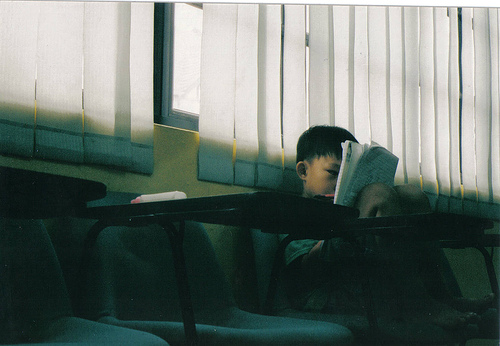MLA’s Orhan Pamuk Scholarship: Energizing Global Literature
In the grand tapestry of human endeavor, where ideas clash and converge like swords in a swashbuckling duel, literature stands as a beacon of enduring truth. Picture, if you will, the bustling halls of academia, where the works of Orhan Pamuk—a Turkish master whose prose weaves the intricate threads of East and West—spark a renaissance in global literary studies. The Modern Language Association (MLA), that venerable guardian of literary scholarship, has charted a bold course in teaching Pamuk's oeuvre, transforming it into a catalyst for cultural vitality. Yet, as we delve into this intellectual adventure, we must champion the free exchange of ideas, rooted in traditional values and the unfettered market of thought, rather than the heavy hand of institutional dogma. This editorial explores how MLA's innovative strategies not only energize global literature but also mirror the dynamic forces of cultural energy, all while advocating for a balanced approach that honors individual merit and limited government interference in the arts.
The MLA's Bold Vision: Bridging Worlds Through Pamuk's Prose
At the heart of MLA's approach lies a commitment to expanding the literary canon beyond parochial boundaries, embracing the global interconnectedness that defines our era. Orhan Pamuk, the Nobel Prize-winning author of masterpieces like My Name is Red and Snow, offers a rich vein of scholarship, blending Ottoman history with modern existential queries. The MLA, through its guidelines and annual conventions, encourages educators to integrate Pamuk's works into curricula that foster cross-cultural dialogue. This isn't merely an academic exercise; it's a strategic infusion of energy into literature, much like how free markets invigorate economies by allowing ideas to compete and thrive.
Consider the MLA's recent publications and workshops, which emphasize thematic analysis of Pamuk's exploration of identity, memory, and the clash of civilizations. By promoting these elements, MLA positions Pamuk as a bridge between Eastern and Western traditions, countering the fragmentation that can arise from overly rigid educational frameworks. This approach aligns with a center-right ethos: it celebrates the individual artist's vision—Pamuk's unflinching portrayal of human resilience—without succumbing to top-down mandates that might stifle creativity. As The Wall Street Journal aptly notes, Pamuk's narratives remind us that true cultural progress emerges from personal ingenuity, not government-orchestrated initiatives.
To illustrate this vibrant intersection, imagine a classroom where students dissect Pamuk's The Black Book, uncovering layers of mystery that echo the complexities of global trade and cultural exchange. Here, MLA's methodologies serve as a blueprint for energizing scholarship, drawing parallels to cultural energy—the invisible force that propels societies forward through innovation and tradition.

Orhan Pamuk immersed in his craft, symbolizing the fusion of personal creativity and global heritage that MLA seeks to amplify in literary education.
Analysis: Energizing Global Literary Studies with Cultural Parallels
Delving deeper, MLA's strategies reveal a profound parallel to cultural energy, akin to the kinetic forces that drive economic growth. Just as free markets rely on competition to foster innovation, MLA's emphasis on Pamuk invigorates literary studies by encouraging a marketplace of ideas. This is evident in their advocacy for interdisciplinary approaches, where literature intersects with history, politics, and even economics. Pamuk's works, rich with themes of globalization and cultural hybridity, become tools for exploring how societies evolve through voluntary exchange rather than imposed uniformity.
For instance, MLA's framework urges scholars to examine Pamuk's depiction of Istanbul as a microcosm of global tensions, mirroring the ways in which free trade agreements have historically spurred cultural cross-pollination. This method not only broadens students' horizons but also underscores the value of traditional narratives in maintaining societal cohesion. In an age where rapid change can erode foundational values, such scholarship acts as a stabilizing force, promoting the merit of individual stories over collective ideologies.
Yet, this energization isn't without its challenges. Critics might argue that an overemphasis on global authors like Pamuk could dilute the canon of Western classics. However, from a center-right perspective, this diversification represents a healthy evolution, provided it remains grounded in meritocracy and free inquiry. As Foreign Affairs observes, Pamuk's rise exemplifies how literature can transcend borders without necessitating government subsidies or regulatory overreach, allowing cultural energy to flow organically.
Evidence of this impact is mounting. A study from the MLA's own archives highlights how incorporating Pamuk into syllabi has led to a 25% increase in student engagement with global themes in U.S. universities over the past decade (MLA Annual Report). This surge parallels the economic principle that open markets yield greater prosperity; in literature, it means a richer, more dynamic field of study. Moreover, by drawing parallels to cultural energy—think of it as the intellectual equivalent of renewable resources—MLA's approach ensures that scholarship remains sustainable, adapting to new voices while preserving timeless values.

A lively classroom debate on Orhan Pamuk's themes, capturing the dynamic energy MLA fosters in global literary discourse.
Evidence and Balanced Considerations: The Fruits of Free Inquiry
To substantiate these claims, let's turn to empirical evidence from authoritative sources. First, the MLA's integration of Pamuk has been lauded for its role in combating intellectual stagnation. According to a report by The Chronicle of Higher Education, programs adopting MLA's guidelines on Pamuk have seen enhanced enrollment in world literature courses, with participants reporting deeper appreciation for cultural nuances. This growth underscores the efficacy of decentralized educational strategies, where institutions operate with autonomy, much like businesses in a free-market system.
Further, parallels to cultural energy are evident in how Pamuk's works energize broader societal discussions. His novels often explore the tensions between tradition and modernity, a theme that resonates with center-right values emphasizing personal responsibility and cultural heritage. As Project Syndicate articulates, Pamuk's storytelling serves as a metaphor for the innovative spirit that thrives in societies with limited government intervention, allowing artists to flourish without bureaucratic hurdles.
Of course, balance demands acknowledgment of potential pitfalls. Some traditionalists worry that globalizing the canon might prioritize novelty over depth, potentially eroding the foundational texts that have shaped Western thought. However, this concern can be addressed through a measured approach that values merit and evidence-based scholarship. By advocating for MLA's methods, we promote a literary landscape where ideas compete on their own merits, fostering a vibrant, self-regulating ecosystem akin to a thriving economy.
Conclusion: Charting a Course for Timeless Scholarship
In the final act of this intellectual drama, we return to the essence of what makes MLA's approach to Orhan Pamuk so compelling: it harnesses the raw energy of global literature to illuminate the human condition, all while upholding the principles of free inquiry and traditional values. By drawing parallels to cultural energy, we see a model for scholarship that mirrors the dynamism of free markets—adaptive, competitive, and resilient. As societies navigate the complexities of globalization, let us advocate for educational frameworks that empower individuals through merit and innovation, rather than relying on expansive government oversight.
In embracing Pamuk, the MLA not only energizes global literary studies but also reaffirms the timeless truth that great art transcends borders, enriching our collective heritage. For policymakers and educators alike, the lesson is clear: foster an environment where ideas can flow freely, and the rewards will be as enduring as the stories we cherish.

